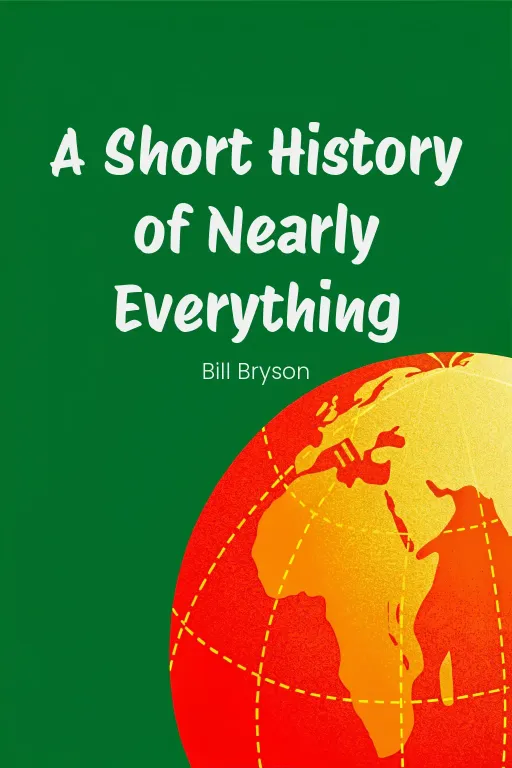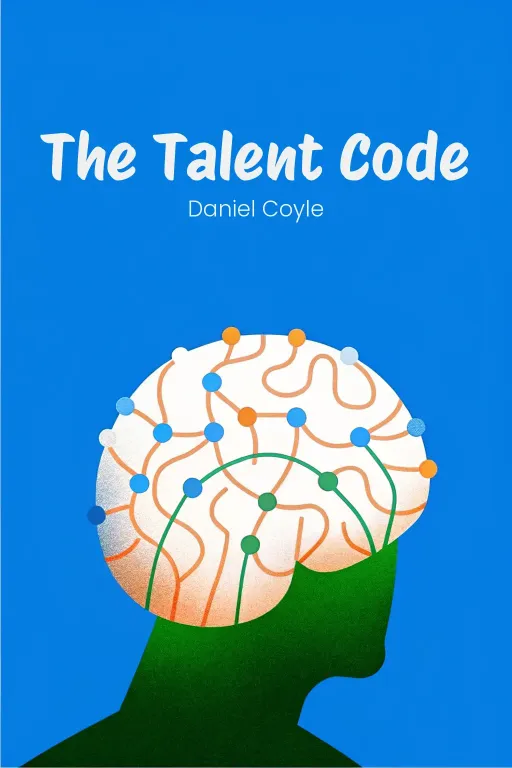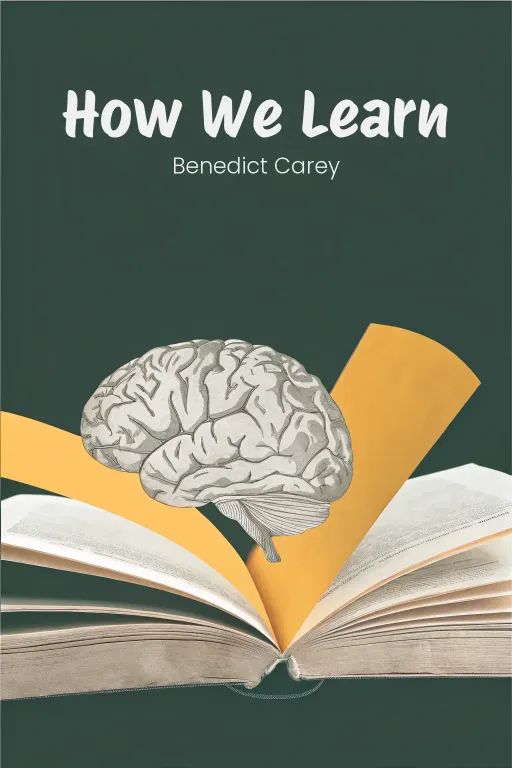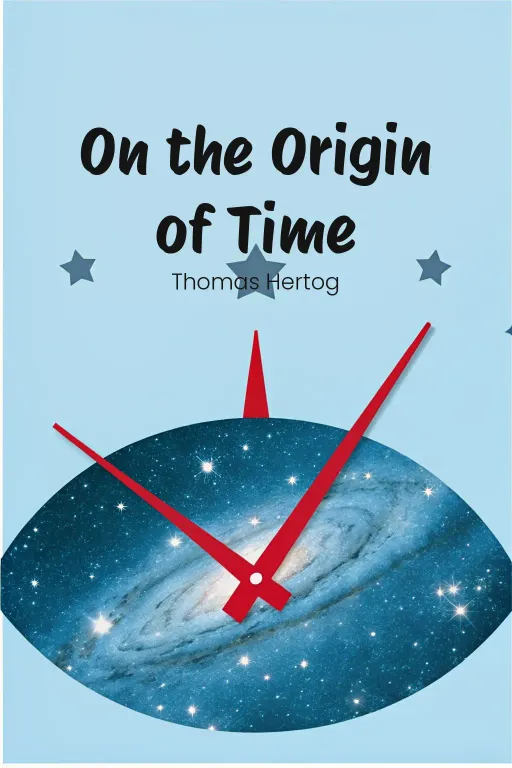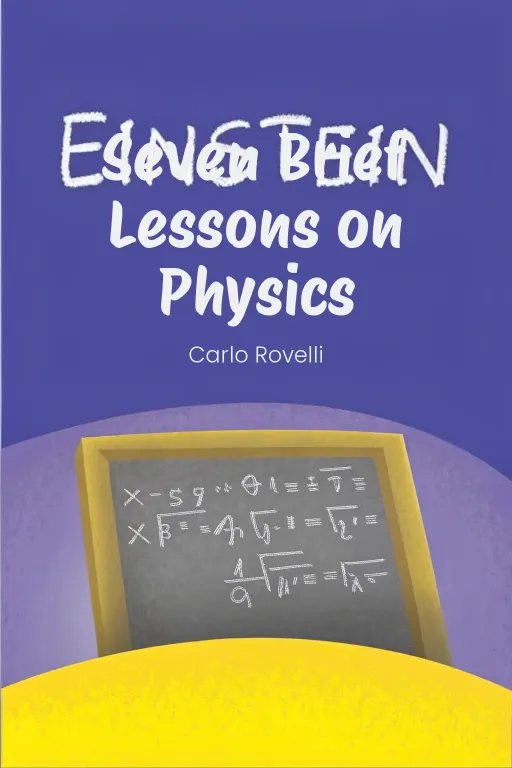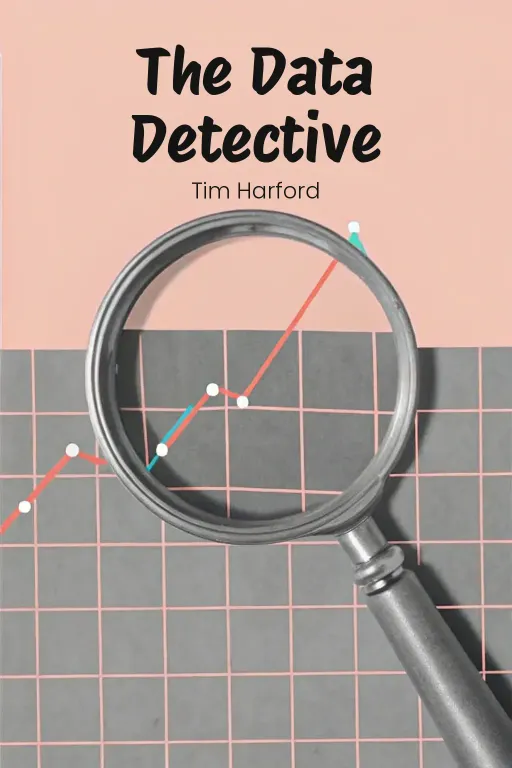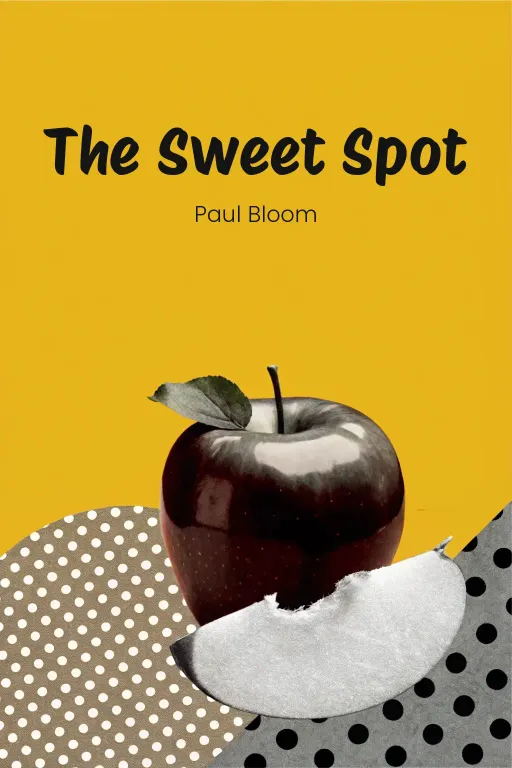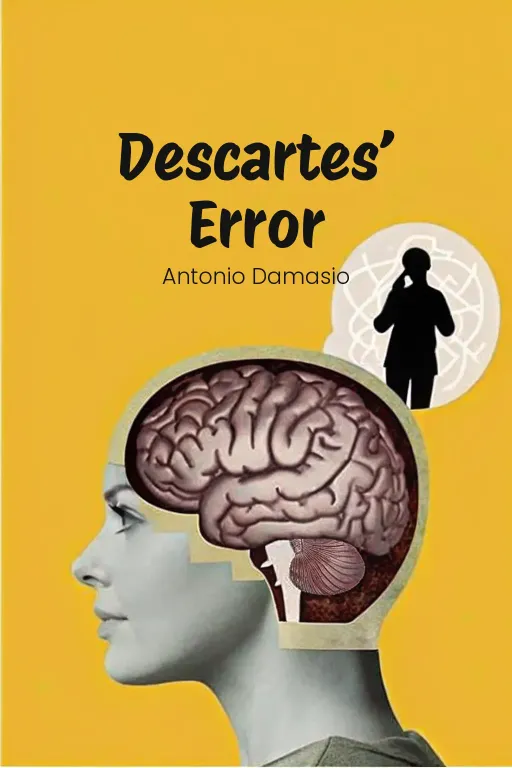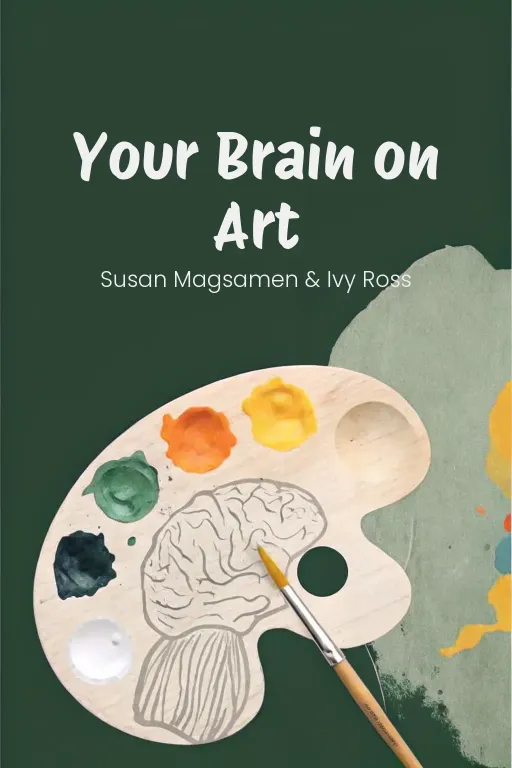
Cosmic Creation: You're Part of the Story!
Podcast by Wired In with Josh and Drew
Stephen Hawking's Final Theory
Introduction
Part 1
Josh: Hey everyone, welcome back! Today, we're diving into a truly mind-bending topic that I think you'll find fascinating. Drew: Mind-bending, huh? Sounds promising. I'm ready to have my preconceived notions thoroughly challenged. What's the topic today, Josh? Josh: We're talking about Stephen Hawking's final theory on the origin of time, fleshed out by cosmologist Thomas Hertog in the book On the Origin of Time. It really pushes the envelope, blending cosmology, quantum mechanics, and even a bit of philosophy to explore how the universe started and why the laws of nature might not be as fixed as we think. Drew: Hold on a sec. You’re telling me even the laws of physics are up for grabs? I mean, where do we draw the line? Josh: Precisely! Think no-boundary universes, cosmic evolution, and the rather provocative idea that observers – that's us – actually influence the very nature of reality. Drew: So, are you saying that we're not just passive observers in this cosmic play, but active participants, co-creating the universe? That's a lot to take in. Josh: It really is! That's why we're dedicating this episode to unpacking three core ideas. First, Hawking’s revolutionary no-boundary proposal, which re-imagines the Big Bang in a way you've probably never considered. Second, the multiverse theory, which proposes the existence of countless universes, each with differing physical laws. And finally, the idea that our observations play a key role in shaping reality—almost like we're cosmic detectives piecing together the universe's story as we go. Drew: So, part physics, part philosophy, and a healthy dose of "wait, we’re actually involved in this?" Alright, everyone, sounds like we’re in for a wild ride. Buckle up!
The No-Boundary Hypothesis
Part 2
Josh: Okay, picking up where we left off, let’s jump right into the no-boundary proposal, really the cornerstone of Hawking’s later work. It's a total rethink of the traditional Big Bang. Instead of picturing a singularity where everything, supposedly, “began,” Hawking and Hartle suggested the universe doesn't actually have a starting point. Think of space and time blending, smoothing out that jagged edge of a “beginning” into something… boundary-less. Drew: Boundary-less, huh? So, we're talking about a universe that's kind of like a cosmic yoga master, right? No harsh angles, super flexible? Josh: Well, picture it more like a four-dimensional sphere. The geometry is key here. Think about the Earth – no edges, right? If you head south, you hit the South Pole, but there’s no cliff to fall off. Hawking thought of the early universe like that – a smooth, curved spacetime without sharp edges or starting lines. Drew: Okay, I get the sphere analogy. But if there’s no starting line, where… or when… does everything actually start? Did someone forget to hit the cosmic "on" switch? Josh: Exactly. That’s the crux of it. The no-boundary hypothesis suggests it doesn’t "start" in the traditional sense. Near the supposed "beginning," time acts more like space – interchangeable, flowing smoothly within spacetime, without a single starting point. The Big Bang isn't really a "bang," it's more like a phase transition, shifting from a quantum state into the classical space and time we recognize. Drew: Wait, are you saying time – actual time – isn’t just some universal clock ticking away? Because if that's the case, that's huge. I mean, time becomes a bit of a fluid concept? Josh: Absolutely! And that's where Hawking’s brilliance shines, weaving quantum mechanics into the mix. In classical physics, time is linear, it's fundamental. But quantum mechanics gets... weird. Time acts less like a rigid sequence, more like a potential state bubbling up from quantum chaos. That’s where “imaginary time” becomes key—Hawking used it as a mathematical tool to model the early universe. Drew: Imaginary time? Okay, this needs unpacking. Because right now, you're making time sound like it exists inside some theoretical playground. Josh: In a way, it is! Imaginary time uses the imaginary unit – derived from the square root of negative one. Basically, if we treat time as another spatial dimension instead of linear, we can model the universe's origin without running into that singularity problem. It smooths things out mathematically, allowing spacetime to behave like an unbroken sphere. Drew: So, instead of time marching forward “one damn thing after another,” it curls back on itself seamlessly? Like walking up a hill and not finding a sharp peak, just continuous curvature? Josh: Exactly! A smooth hill, not a cliff face. Instead of the Big Bang singularity, spacetime gradually emerges into the observable universe we see today. This smoothing means you can't ask, "What was before the Big Bang?" because there simply was no before. Drew: Alright. Here's the biggie. What do you say to skeptics who argue, "You’re just renaming the Big Bang, calling it boundary-less. Isn't this all just semantics?" Josh: Great point. Hawking addressed this by showing the no-boundary hypothesis isn't just a different story—it’s actually built on the foundations of general relativity and quantum mechanics. It's a real attempt to reconcile these frameworks, which have historically given conflicting answers at the largest and smallest scales of the universe. Drew: Quantum mechanics, got it. Isn't that the one where particles can exist in multiple states at once and pop in and out of existence? How can that play a role in entire universes? Josh: Ingeniously, actually. Hawking argued the universe itself can be treated like a quantum particle—a wave function. So it's probabilistic, meaning it could have started in a variety of possible states. Cosmic inflation, the rapid expansion of the early universe, essentially selected the path that became our observable universe from this quantum starting point. Drew: So it's saying Schrödinger’s cat isn’t just in or out of the box, the entire universe existed in a quantum fog until it, well, decided it didn’t? Josh: Precisely! This "fog" resolves into the universe around us. It totally changes how we think about creation. Instead of requiring an external trigger or cause, the universe emerges from these inherent quantum principles—it effectively creates itself. Drew: Okay, time out. You're telling me the universe spontaneously appeared... from nothing? This is where my brain starts to fizzle. Josh: I know, it’s counterintuitive. Just remember, in quantum mechanics, "nothing" isn’t really empty. It’s a dynamic state buzzing with potential. Quantum fluctuations – momentary bursts of energy – can spontaneously create particles or even spacetime itself. Drew: So all this – the stars, galaxies, my morning coffee – comes from random blips of energy in the void? That's... unsettling, and also kind of amazing. Josh: It is! Hawking emphasized how this redefines causality. It’s no longer simple cause and effect. Instead, we have a probabilistic universe, one that emerged nearly as a natural outcome of quantum mechanics. Drew: Sure, but critics are gonna have a field day with this "self-contained universe from nothing" idea. Isn't it essentially impossible to actually prove? Josh: A fair critique. We may never be able to empirically test the universe at such extreme conditions. But the mathematical elegance and consistency of the no-boundary hypothesis give it real weight. Cosmologists see it as one of the best frameworks for reconciling relativity and quantum physics. Drew: So it’s less about proving a definitive origin, and more about creating a model that stands up under scrutiny, right? Josh: Exactly. It's about pushing our understanding of the universe deeper, and in that process, reframing some of our biggest philosophical questions. Drew: Like whether asking "before the Big Bang" is even a valid question. I see. Still wrapping my head around that one. So, what's next? Josh: Next, we'll connect this model to the larger cosmic scales, exploring how these quantum origins shaped cosmic inflation, maybe even the multiverse.
Cosmic Inflation and the Multiverse Debate
Part 3
Josh: So, building on all of that, let's explore how this hypothesis affects our understanding of cosmic structures, specifically cosmic inflation and the multiverse debate. We're basically zooming way out, examining these massive cosmic structures, and then thinking about how human observation even fits into the picture. Get ready, we’re going from the very beginning of time to the mind-boggling structures that it created. Drew: Alright, so we're jumping from this quantum soup to the universe's massive growth, which basically went from zero to sixty in a cosmic blink, right? Josh: Exactly! Inflation is the leading theory for the universe's exponential expansion right after the Big Bang, or, you know, Hawking's phase transition. It wasn't just a gentle awakening, it was more like the universe shot out of a cannon. Alan Guth proposed this in the early 80s, and it's been a key part of modern cosmology ever since. It really helps solve some major problems that the standard Big Bang theory couldn't quite handle. Drew: Got it. So inflation is the universe hitting the nitrous button. What specific problems are we talking about here? Josh: Well, there's the flatness problem. Observations show the universe's geometry is remarkably flat. Without inflation, we'd just have to say it's an incredible coincidence. Inflation stretches spacetime so much that any initial curvature gets smoothed out—think of pulling a wrinkled sheet until it’s perfectly smooth. Then, there's the horizon problem. Why does the universe look so uniform on such large scales? The cosmic microwave background radiation, that faint afterglow of the Big Bang, is incredibly consistent in all directions. Drew: Right, if different parts of the universe couldn't communicate, because light hadn't had enough time to travel between them, how could they possibly coordinate temperatures? It always seemed like some kind of cosmic miracle. Josh: That's where inflation steps in. During this rapid expansion, regions that were once close enough to influence each other—like neighbors chatting over the fence—got stretched far apart. Their uniformity actually reflects conditions from before inflation, when they were in contact. It's a pretty elegant solution, when you think about it. Drew: So inflation smooths out all the wrinkles and ties everything together, giving us this orderly universe, or at least, a mostly orderly one. But how do we know this isn't just a theoretical fix? Like, do we have any actual proof? Josh: Oh, lots! The most compelling evidence comes from the cosmic microwave background, the CMB. It’s a snapshot of the universe from about 380,000 years after the Big Bang. Missions like Planck and WMAP have mapped out its tiny temperature and density fluctuations in great detail. And they match inflationary models remarkably well. Plus, inflation explains how quantum fluctuations—tiny ripples of randomness at the smallest scales—were amplified during the expansion to become the seeds for galaxies and other cosmic structures. Drew: So inflation not only smooths everything but also adds just enough randomness to build galaxies? I guess the universe is like that friend who somehow manages to be both perfectly chaotic and perfectly organized. Josh: That's a great way of putting it. Now, Andrei Linde expanded on these ideas with "eternal inflation". And that’s really where things get even weirder. Drew: Oh, come on. As if cosmic turbo boost wasn't weird enough. What's eternal inflation? Josh: Linde proposed that inflation doesn't just happen once and stop. It keeps going in different parts of the universe. Imagine a bubbling pot of water. Each bubble is a pocket of space where inflation has ended, forming a "universe" like ours. But the broader "pot" keeps expanding, with new bubbles constantly forming. That's the multiverse hypothesis—potentially infinite universes, each with its own unique physical properties. Drew: Hold on. You're suggesting there could be universes out there where the laws of physics work differently? Gravity turns off, light moves backward, the whole deal? Josh: Theoretically, yes. Each bubble universe could have variations – different fundamental constants, even different physics. In some, stars might never form. In others, the differences might be subtle but still significant. Drew: Okay, I have so many questions. First, how do we even begin to prove something as wild as the multiverse? I mean, it sounds like a cosmic excuse: "Oh, don't worry, there's another universe for that!" Josh: That's the tricky part. Direct evidence is almost impossible because these other bubble universes, if they exist, are causally disconnected from ours. We can't interact or observe them directly. But eternal inflation provides a theoretical framework that could connect it to observable phenomena, like the CMB. Some multiverse models predict subtle imprints that might show up in our measurements of cosmic structures someday. But for now, it’s a hotly debated concept. Drew: So we're stuck inferring the existence of something we can’t see by studying our own little bubble. Kind of like trying to figure out what's happening next door by listening to muffled sounds through the wall. Josh: Exactly. And this is where Hawking's views diverged sharply from Linde's. Linde embraced the idea of infinite, chaotic bubble universes, while Hawking believed in a more contained reality kind of idea. He thought we should see the universe as a probabilistic whole with all possible histories contributing to its current state. Drew: So instead of an endless parade of bubbles, Hawking imagined one connected universe with a fuzzy, probabilistic past? Josh: More or less. With his "top-down" approach, we can’t think of the universe as having a single, definitive starting point. Instead, it’s shaped by all the possible quantum histories and narrowed down by us, the observers. Observers actively determine which version of cosmic history becomes meaningful. Drew: Okay, but isn’t that kind of a big claim, saying we shape the universe just by watching it? It feels like we've gone from cosmic dust specks to co-authors of existence. Josh: It sounds bold, sure, but it's less about inflating humanity's ego and more about recognizing that in quantum cosmology, the act of observation bridges probabilities and reality. In some way, the history of the universe isn't fully written until someone reads it. Drew: So we're less “masters of the universe” and more like cosmic editors piecing together a draft. Josh: Precisely. That's the philosophical core of this debate: Are the universe’s meaning and properties inherent, or do they depend on how it's perceived? And that also connects to the anthropic principle, which asks why our universe seems so perfectly tuned for life. Drew: Ah, the "we're here because we can be here" argument. Kind of practical, but it always feels like a cop-out to me. Josh: Hawking might say it's not a cop-out. It’s a perspective, which can help you to understand why our universe is life-permitting. The universe we live in must be the one that supports observers, because here we are. It's not design or accident, it’s a result of quantum probabilities meeting with our existence. Drew: So, in some twisted way, the fact that we can even ask why the universe exists proves that the conditions were just right to make us in the first place. It's all very "chicken and egg." Josh: And that's what makes this debate so endlessly fascinating. The multiverse opens up infinite possibilities. But it also forces us to rethink how we define the universe we see. Now, from this huge, chaotic picture, let’s consider the role of individual observers. If the universe depends partly on us observing it, what does that say about our place in it?
Observership in Quantum Cosmology
Part 4
Josh: Okay, shifting gears from the multiverse to something perhaps even more mind-bending: the role of observers in shaping reality, according to Stephen Hawking. We're diving into quantum cosmology here, and it gets personal fast. It suggests that how we observe the universe actually influences its structure and history. Drew: Wait a minute. Are you seriously suggesting that my gazing at the stars somehow changes them? If so, I think I accidentally wandered into a philosophy lecture. How can any observer, insignificant as we are, truly affect the entire cosmos? Josh: That’s where quantum mechanics comes in, right? In classical physics, the universe is independent of us. Things happen in a linear, cause-and-effect manner, whether we're around to witness them or not. But quantum mechanics suggests observation is active, not passive. Think of Schrödinger’s Cat. It's both alive and dead until someone opens the box and observes its state. Drew: Right, the classic thought experiment. But a cat in a box is hardly the same as the universe. Do these quantum rules really apply on such a grand scale? Josh: Well, Hawking thought they might. His "top-down cosmology" basically builds upon this idea. Instead of a single timeline for the universe, he proposed that all possible histories are encoded in its quantum wave function. And here's the really crazy part: our observations – what we choose to measure or focus on – effectively select which of those histories becomes "real.” Drew: Hang on a second. So all these potential histories are floating around, and we, through our act of observation, collapse them into one single storyline? That sounds less like physics and more like the universe is making things up as it goes along depending on what we're paying attention to. Josh: <Laughs> that's actually a really good analogy. Think of it as narrowing down an infinite number of possibilities into a coherent narrative. Hawking’s top-down approach argues that reality doesn’t unfold neatly from cause to effect. But instead, the past, and therefore the universe’s history, is fluid. It shaped by how we observe it in the present. Drew: Wow, my head is spinning. So you’re saying that by studying the universe today—looking at, say, distant galaxies—I’m somehow influencing what the early universe was "like"? Josh: Exactly! For example, when you observe the distribution of galaxies today, your observations don’t just describe what’s happening now; they effectively "choose" a history of the universe that explains how we got here. The histories that don't fit with your observations? They just fade away, becoming irrelevant within this framework. Drew: It's not just "the past determines the present" then, it’s like the past and present are in some kind of cosmic negotiation? Josh: Yes. And that’s what excited Hawking. It flips traditional causality on its head. In classical physics, everything moves forward: the Big Bang happens, the universe evolves, and then we appear. Hawking argued it’s more circular: The universe’s probability wave collapses retroactively to create a coherent history that matches what we see now. Drew: Okay, but how do we reconcile this with the absolute vastness of the cosmos? I get Schrödinger’s Cat because it's on a human scale. But the universe? Humanity’s footprint is tiny. Doesn’t it seem a bit… well, arrogant to think our observing anything could influence something so huge? Josh: I understand that critique, but this quantum cosmology isn’t about putting humans at the center. It’s more about recognizing that observation in physics, whether by us or any other form of sentience, is active. It “locks in” certain realities. Without observers, the universe’s possible histories would remain just that—possibilities. Observers give shape to those probabilities. Drew: So it’s less about us being cosmic architects and more about how consciousness, or intelligence, acts as a filter for probabilities? Josh: Exactly. Hawking's theory basically says that the universe needs observers to resolve its inherent quantum ambiguity. That doesn't mean we're some kind of cosmic rulers, but that we're vital components in this interplay between probability and reality. It's like a dance. The universe leads with all these possibilities, and observers help choreograph the final steps of what becomes "real.” Drew: Right, this connects nicely to quantum mechanics, but there's something deeply philosophical here as well, isn’t there? If the universe needs observers to make sense of itself, what happens to the concept of an objective reality? Josh: That’s one of the deepest implications, Yeah? It challenges the idea of an unchangeable, objective universe. From this top-down view, reality essentially "depends." It depends on the questions we ask, the measurements we take, even the conceptual framework we use. The universe is, in a sense, a collaboration between our observations and its quantum principles. Drew: So reality might not be just something "out there". It's part perception, part probability… almost participatory. Josh: Yes. And that brings us to another layer – meaning. If our observations are actively shaping reality, they’re also shaping how we find meaning in the universe itself. Hawking always said that science isn’t just about discovering facts; it’s about making sense of existence. Top-down cosmology forces us to ask, "What does it mean for the universe to be shaped, at least in part, by us?" Drew: So Hawking's theory isn't just redefining the "what" of the universe, but the "why." Suddenly, we're not just tiny, irrelevant observers; we're integral to the story that's unfolding. Josh: Exactly! And that's the key takeaway here. Observership in quantum cosmology isn’t just a theoretical concept—it transforms how we think about our place in the universe. Through this lens, we suddenly have a role, even a purpose, in this vast, impersonal cosmos. It shows that asking questions, whether about time, or origins, or meaning, isn’t just curiosity. It’s actually part of how the universe continues to write its own story.
Conclusion
Part 5
Josh: Okay, so let’s bring it all together, shall we? Today we unpacked some of Stephen Hawking’s most mind-bending concepts from his final theory. First up, the no-boundary hypothesis which offers an alternative to the Big Bang, picturing a universe without a singular point of origin – more like a gentle emergence from quantum fluctuations. Then, we had cosmic inflation and the multiverse, this idea that the rapid expansion of space-time could’ve spawned countless other universes, each with its own set of rules. And finally, quantum cosmology, which suggests that our very observations play a role in shaping reality at the quantum level. Drew: Right, so, not just equations, but also, like, what does it even mean if time isn’t a constant but just emerges from the universe itself? And if us looking at things shapes what happened, how do we even know what’s real? It’s not just about how things work; it’s about, well, why anything works the way it does. Josh: Precisely! Hawking’s legacy is a reminder that science goes beyond just explaining the mechanics of the universe. It's about uncovering the deeper significance of our existence. Whether it's the grace of inflation, the sheer scale of the multiverse, or the importance of observers in influencing reality, these ideas challenge us to rethink our role in the whole cosmic picture. Drew: It all boils down to this: the questions we ask are just as important as the answers we get, right? So here’s a thought: let’s all, scientists, philosophers, anyone who’s curious, keep digging into those big questions about time, space, and what it all means. Even if the answers seem impossible to find. Because, like Hawking showed, the very act of questioning is how we shape the universe.
